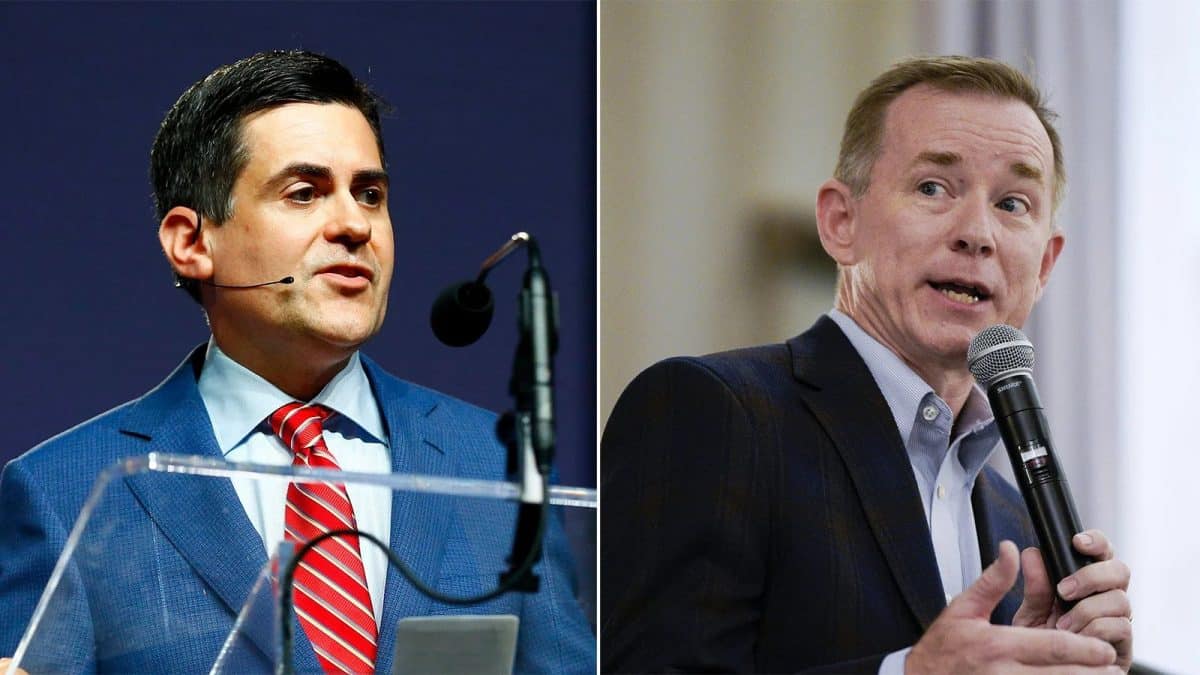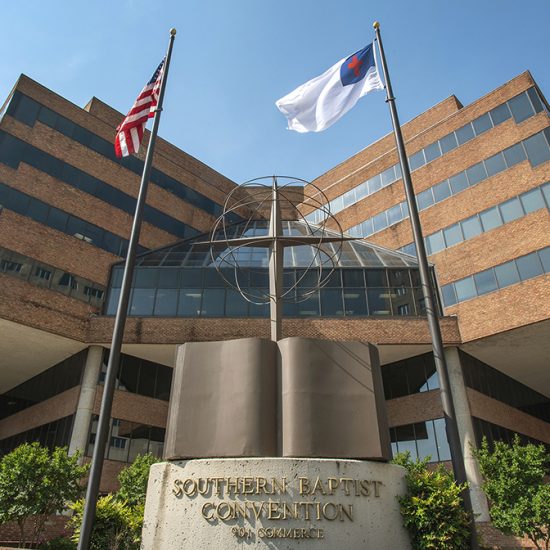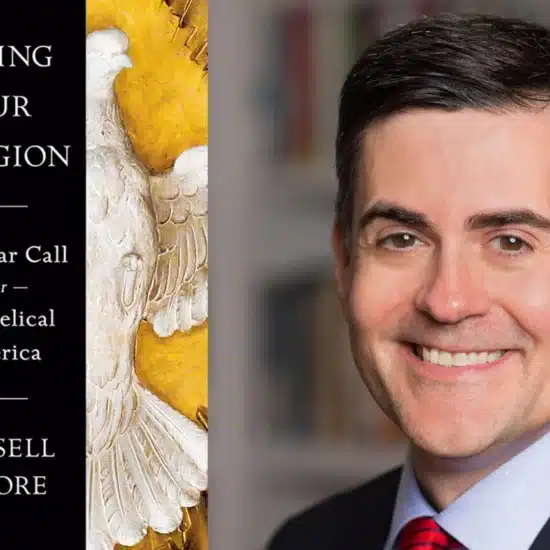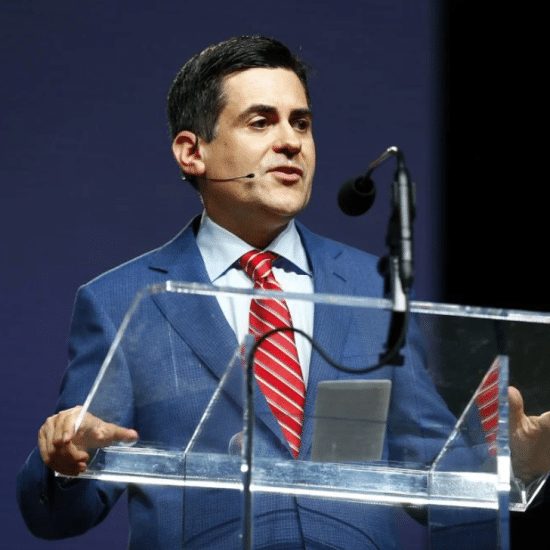
(RNS) — A legal battle between a former Southern Baptist ethicist and one of his chief critics is over for now.
Lawyers for Georgia Baptist pastor Mike Stone filed paperwork Thursday (Dec. 9) to voluntarily withdraw a complaint filed in federal court against Russell Moore, the former head of the Southern Baptist Convention’s Ethics and Religious Liberty Commission. The complaint was dismissed without prejudice Friday by U.S. District Court Judge William Campbell.

Russell Moore in 2019 (left) and Mike Stone in 2021. (Moore: Butch Dill/RNS; Stone: Adam Covington/Baptist Press)
That dismissal came a week before the deadline for Moore to file a response to Stone’s initial complaint, filed this fall in U.S. District Court for the Middle District of Tennessee, which accused Moore of defamation, false light invasion of privacy and intentional infliction of emotional distress. Stone claimed two letters written by Moore — and leaked anonymously to media — painted him in a negative light and damaged his bid to become SBC president.
In those letters, Moore claimed the SBC’s Executive Committee — of which Stone is a former chairman — had covered up sexual abuse and that he was pressured to silence an abuse survivor who spoke at an ERLC conference on sexual abuse.
Stone has denied those claims.
“Plaintiff’s business operations have already been negatively impacted by Defendant’s untruthful statements due to a decreased trust and confidence in Plaintiff in the religious community, and the Plaintiff’s pastoral efforts will undoubtedly suffer decreased church attendance and a reduction in donations and honorariums because of Defendant’s statements which are untruthful and have cast Plaintiff in a false light,” the complaint filed by Stone’s lawyers alleged.
The two had long been at odds.
As chair of the SBC’s Executive Committee, Stone had spearheaded an investigation into Moore’s tenure at the ERLC, which concluded the agency was a distraction from the SBC’s broader mission. It was the second time Moore had been investigated — prompted in large part by his criticism of Donald Trump and his push for the nation’s largest Protestant denomination to address issues of racism and sexual abuse.
Moore resigned as president of the ERLC about a month before the SBC’s annual meeting to become a public theologian for the evangelical magazine Christianity Today. He also left his Southern Baptist home church to join a nondenominational congregation.
Stone’s bid for presidency was backed by the Conservative Baptist Network and Founder’s Ministries, two conservative groups that claim the SBC became liberal because of leaders like Moore and former SBC President J.D. Greear. Stone narrowly lost the presidency at the annual meeting in June to Ed Litton, a relatively unknown senior pastor of Redemption Church in Saraland, Alabama, who has made racial reconciliation a hallmark of his ministry.
During a public taping of his podcast in September, Moore said he could have remained at the ERLC but that the cost of doing so was not worth it.
“I could have won the conflict that needed to be fought,” he said in September. “But I realized I would have to have a conflict. And I didn’t want to be the kind of person I would be on the other side of that.”
Neither Moore, Stone nor their attorneys could be reached for comment.






